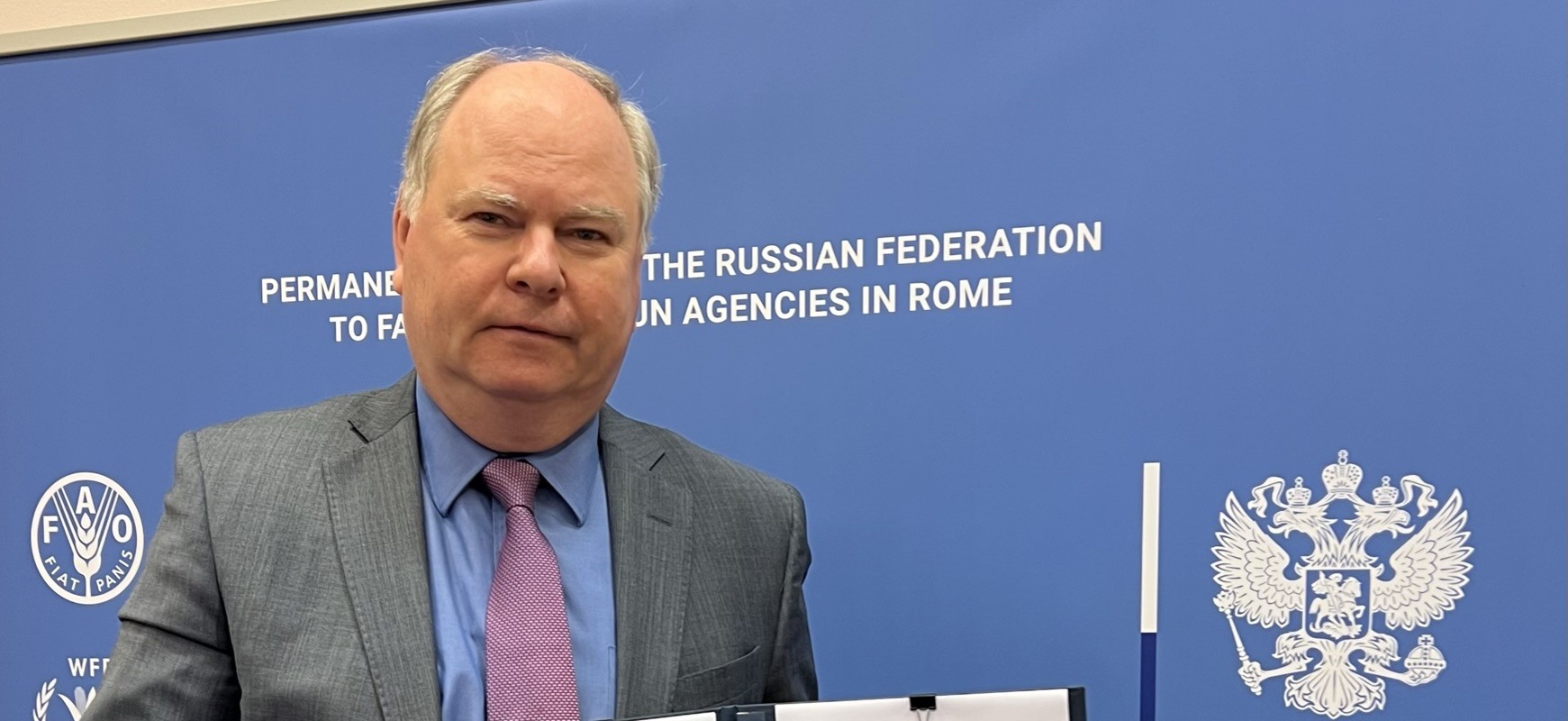Planting worthy seeds into fertile soil

The FAO’s project entitled “Promoting Sustainable Soil Management in the Framework of the Global Soil Partnership” has received financial assistance from the Government of the Russian Federation. Funds from the federal budget have been allocated for the implementation of the project. In this worthwhile and noble cause, Russia acts as FAO’s partner.
In December 2021, the Permanent Representative of the Russian Federation to FAO and other UN Agencies in Rome, Ambassador Victor Vasiliev and Deputy Director-General at FAO Laurent Thomas signed an Agreement on the allocation by Russia of USD 2 000 000 for the implementation of its third phase.
It is aimed at initiating sustainable soil management practices through the realization of pilot programmes on sustainable use of fertilizers, soil biodiversity preservation, soil organic carbon management, along with addressing the issue of soil salinization.
Moscow views this joint project with FAO as a contribution of Russia to the implementation of the 2030 Agenda for Sustainable Development, as well as to the food systems transformation in accordance with the recommendations of the UN Food Systems Summit, held in September 2021.
The programme has been designed to mitigate the tremendous stress on land resources that had resulted in significant decrease in soil quality and productivity, as outlined in the Status of the World’s Soil Resources: Main Report (2015) and in the Regional Overview in the Eurasian Region (2021). Mitigation is to be achieved through sustainable soil management (SSM) practices.
In addition to addressing soil fertility issues, SSM practices are to facilitate carbon sequestration and decrease the amount of greenhouse gases in the atmosphere, thus reducing the adverse effects of climate change.
Thanks to the financial support of the Russian Federation, such key regulatory-technical documents of the Global Soil Partnership as “Protocol for the Assessment of Sustainable Soil Management” and “A protocol for Measurement, Monitoring, Reporting and Verification of Soil Organic Carbon in Agricultural Landscapes”, “The International Code of Conduct for the Sustainable Use and Management of Fertilizers” have been developed over the previous years.
As a part of the new project, it is planned to apply the Protocols and the Code on fertilizers in pilot areas, assess the impact of various agricultural practices on soil health and carbon sequestration, as well as find ways of scaling up the most successful practices in the Eurasian region.
The programme plans to further assist the Eurasian Soil Partnership and continue to finance the annual Glinka World Soil Prize.
The support for the global field-specific networks – the International Network of Soil Information Institutions (INSII), the Global Soil Laboratory Network (GLOSOLAN), the International Network of Salt-Affected Soils (INSAS), the International Network of Black Soils (INBS), and the International Network on Fertilizer Analysis (INFA) – will constitute its critical component.
